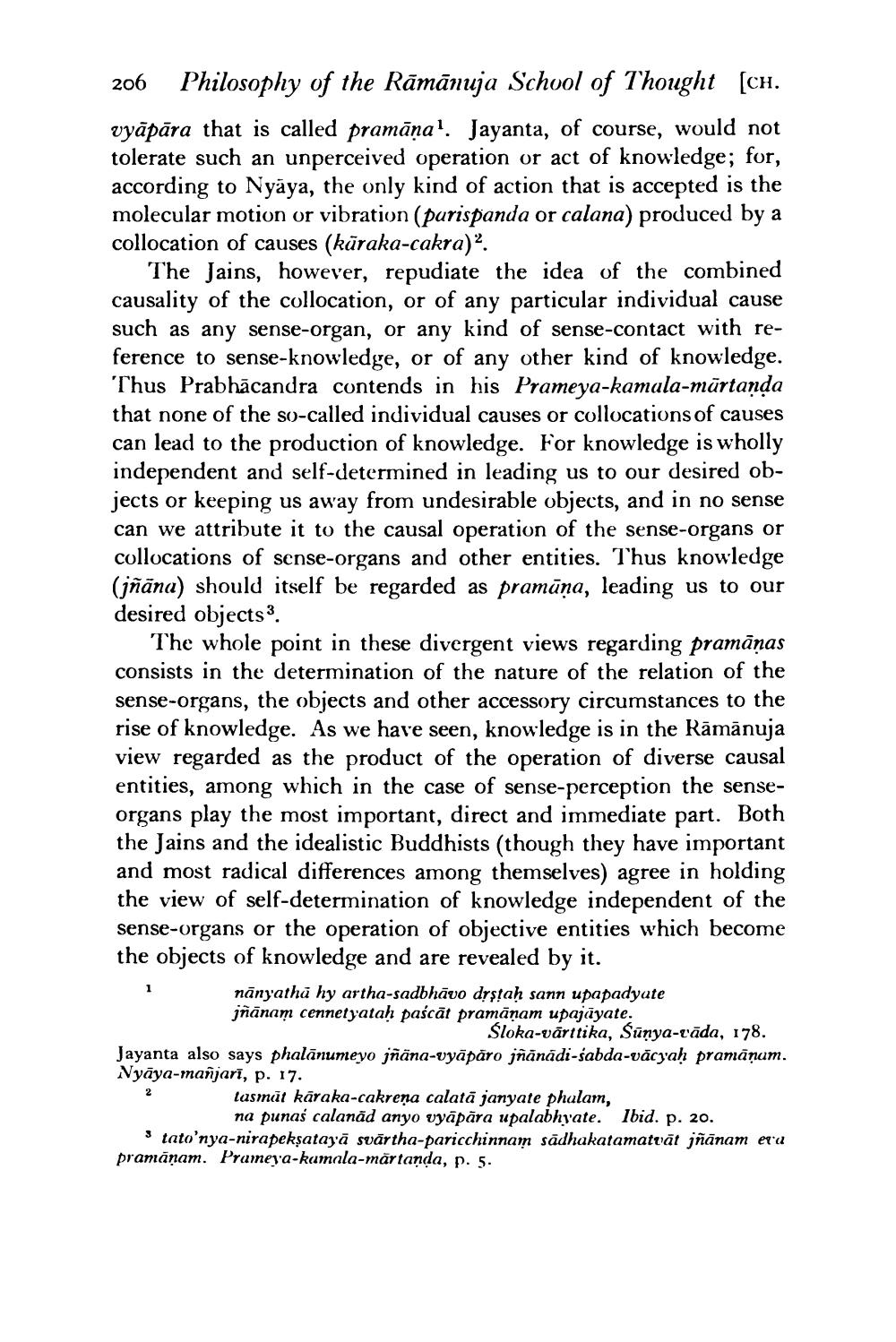________________
206 Philosophy of the Rāmānuja School of Thought [ch. vyāpāra that is called pramāņa!. Jayanta, of course, would not tolerate such an unperceived operation or act of knowledge; for, according to Nyāya, the only kind of action that is accepted is the molecular motion or vibration (parispanda or calana) produced by a collocation of causes (kūraka-cakra)?
The Jains, however, repudiate the idea of the combined causality of the collocation, or of any particular individual cause such as any sense-organ, or any kind of sense-contact with reference to sense-knowledge, or of any other kind of knowledge. Thus Prabhācandra contends in his Prameya-kamala-mārtanda that none of the so-called individual causes or collocations of causes can lead to the production of knowledge. For knowledge is wholly independent and self-determined in leading us to our desired objects or keeping us away from undesirable objects, and in no sense can we attribute it to the causal operation of the sense-organs or collocations of sense-organs and other entities. Thus knowledge (jñāna) should itself be regarded as pramāņa, leading us to our desired objects 3.
The whole point in these divergent views regarding pramāņas consists in the determination of the nature of the relation of the sense-organs, the objects and other accessory circumstances to the rise of knowledge. As we have seen, knowledge is in the Rāmānuja view regarded as the product of the operation of diverse causal entities, among which in the case of sense-perception the senseorgans play the most important, direct and immediate part. Both the Jains and the idealistic Buddhists (though they have important and most radical differences among themselves) agree in holding the view of self-determination of knowledge independent of the sense-organs or the operation of objective entities which become the objects of knowledge and are revealed by it.
nānyathì hy artha-sadbhāvo drstah sann upapadyate jñānam cennetyatah paścāt pramānam upajāyate.
Sloka-vārttika, Sūnya-tāda, 178. Jayanta also says phalānumeyo jñāna-vyāpāro jñānādi-sabda-vácyah pramāņum. Nyāya-manjarī, p. 17.
lasmāt kāraka-cakrena calatā janyate phalam,
na punas calanād anyo vyāpāra upalabhyate. Ibid. p. 20. stato'nya-nirapeksatayā svārtha-paricchinnam sādhakatamaträt jñānam eta pramānam. Prameya-kamala-märtanda, p. 5.




